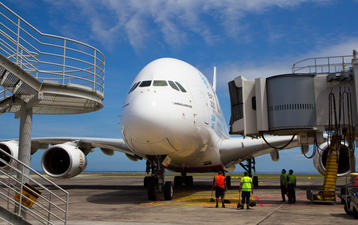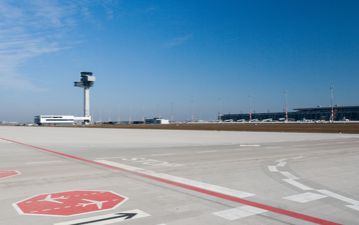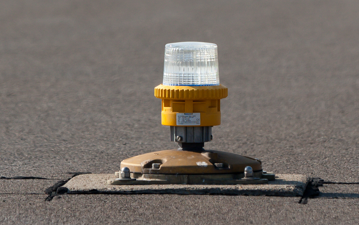Aviation Safety and Human Performance
Human Factors, Human Performance and Resilience in Aviation Safety
Human factors and human performance are among the most critical factors in aviation safety — directly influencing the reliability of airport operations and contributing to many incidents and accidents. According to EU Regulation (EU) No. 139/2014 and EASA certification procedures, aerodrome operators and inspectors are required to systematically integrate Human Factors into the planning, design, operation, and oversight of aerodromes in order to reduce risks caused by human error. This course provides a comprehensive understanding of the human element within the complex aerodrome environment and equips participants with practical tools to identify, assess, and manage human performance challenges.
Based on ICAO, EASA and ACI requirements, the training explores the fundamentals of Human Factors and their integration into daily operations, planning, design, certification, and maintenance of aerodromes. Special emphasis is placed on organisational resilience, the concept of Just Culture, and the ability to strengthen safety barriers in order to minimise risks arising from human error. Participants will gain insights into international case studies and learn how accidents and incidents can be systematically analysed to support continuous improvement.
The training combines interactive expert input with practical examples and case studies from international practice — including apron incidents, runway incursions, and ground handling errors. Group exercises and scenario work encourage active participation and exchange of experience, enabling participants to develop practical measures to enhance safety awareness and integrate Human Factors into the Safety Management System (SMS). By the end of the course, attendees will be able to design training programmes and strategies to foster a resilient safety culture within their organisations.
This course is particularly relevant for aerodrome operators and inspectors, safety managers, compliance officers, operations and maintenance staff, ground handling personnel, and regulatory authorities. No prior specialist knowledge of Human Factors is required — just a commitment to strengthening safety in aviation.
Course Details
Location:BerlinLanguage:English
Date:27.10. - 28.10.2025
Duration:2 days
Provider:airsight GmbH
Course Fee
For courses in Berlin:
All customers will be charged 19% VAT. For more information please see our About Taxes page.
The final price will be shown on your invoice.
Please note: If you want to register several particpants from your company but need a single invoice for each, please register each of them seperately.
Course Content
Foundations and regulatory framework
- ICAO Annexes, EU Regulation (EU) 139/2014, and EASA Certification Specifications
- Importance of Human Factors in aerodrome planning, design and operations
Human Factors fundamentals
- SHELL and Swiss Cheese models applied to aerodromes
- Communication, decision-making, teamwork and situational awareness
- Human performance limitations: fatigue, stress, workload
Human error, resilience and safety culture
- Types of human error and organisational learning
- Building resilience and strengthening safety barriers
- Just Culture principles and effective safety reporting
Safety-critical areas in aerodrome operations
- Interfaces such as airside operations, apron management, maintenance and winter service
- Case studies: runway incursions, apron collisions, ground handling events
Learning from incidents and risk reduction
- ICAO Annex 13 investigation principles
- Integration of Human Factors into SMS and preventive measures
Training methods and practical application
- Interactive expert inputs, international case studies and group exercises
- Scenario work and action planning for participants’ organisations
Trainer
Dipl-Ing. Johann Reuß
Johann Reuß is a retired civil aviation accident and safety investigator with more than 37 years of professional experience. Throughout his career, he served in key roles such as Investigator in Charge (IIC), Accredited Representative (AccRep), and Adviser. For five years, he held the position of Director at the German Federal Bureau of Aircraft Accident Investigation (BFU).
He has a long-standing and proven track record in aviation safety and accident investigation at national, European, and international levels. Johann is known for his ability to communicate effectively and to adapt quickly to different organisational structures. He is well-versed in the Standards and Recommended Practices of the International Civil Aviation Organization (ICAO) as well as in European aviation regulations.
In addition to his investigative work, Johann has extensive experience as an instructor, having trained safety personnel from aviation authorities, airports, airlines, and aircraft manufacturers in methods of investigating accidents, serious incidents, and occurrences in civil aviation.
Today, his focus lies also in the proactive field of aviation safety. His work includes the assessment and documentation of operational risks and the practical implementation of Safety Management Systems (SMS). He also supports the preparation and structuring of safety-related data for regulatory databases such as ECCAIRS and ADREP.
Another focus is the topic of human factors. Building on his experience from investigations into why people make mistakes and how organisational aspects influence this, Johann also considers the reverse approach: Increasing flight safety through human performance and resilience.
Target Group
- Aerodrome operators and inspectors (ADR Operators and ADR Inspectors)
- Regulatory and oversight authorities
- Safety managers and compliance officers
- Aerodrome operations staff (airside, apron and winter service)
- Maintenance engineers and technical services personnel
- Ground handling organisations and staff
- Flight and cabin crew, and air traffic controllers
- Aviation trainers and Human Factors specialists
Course Location
Participants are responsible for making their own travel arrangements. The accommodation and travel costs are at the charge of the participants. Please note that airsight does not perform any travel and hotel bookings for the participants. Rooms can however be booked directly by the participants by contacting the hotel. We would like to point out that from January 2025 a City Tax of 7.5% will be imposed on overnight stays for business and professional purposes in Berlin.
The course fee includes the registration, training material and examination. For non-virtual courses, coffee breaks and business lunch are also included.
Organisational Details
The course hours are scheduled as follows:
first training day: 10:00 am - 5:00 pm
last training day: 8:00 am - 4:00 pm
Coffee breaks and business lunch are included in the course fee. At the end of the course, all participants will receive an airsight certificate based on EASA training regulations, which is highly recognised throughout the aviation industry.
About airsight Training
airsight Training course quality
airsight operates an ISO 9001 certified Quality Management System and pursues the objective to provide high quality services that fully meet the clients’ needs.
Course Details
Location:BerlinLanguage:English
Date:27.10. - 28.10.2026
Duration:2 days
Provider:airsight GmbH
Course Fee
For courses in Berlin:
All customers will be charged 19% VAT. For more information please see our About Taxes page.
The final price will be shown on your invoice.
Please note: If you want to register several particpants from your company but need a single invoice for each, please register each of them seperately.
Course Content
Foundations and regulatory framework
- ICAO Annexes, EU Regulation (EU) 139/2014, and EASA Certification Specifications
- Importance of Human Factors in aerodrome planning, design and operations
Human Factors fundamentals
- SHELL and Swiss Cheese models applied to aerodromes
- Communication, decision-making, teamwork and situational awareness
- Human performance limitations: fatigue, stress, workload
Human error, resilience and safety culture
- Types of human error and organisational learning
- Building resilience and strengthening safety barriers
- Just Culture principles and effective safety reporting
Safety-critical areas in aerodrome operations
- Interfaces such as airside operations, apron management, maintenance and winter service
- Case studies: runway incursions, apron collisions, ground handling events
Learning from incidents and risk reduction
- ICAO Annex 13 investigation principles
- Integration of Human Factors into SMS and preventive measures
Training methods and practical application
- Interactive expert inputs, international case studies and group exercises
- Scenario work and action planning for participants’ organisations
Trainer
Mark Taylor
Mark is an Airbus A320 Captain for a major flag carrier Airline, with 11,000 flying hours and 15 years experience working in Aviation. During this time, he has held positions in Flight safety, taking responsibility for embedding Safety Management Systems (SMS) as well as completing Flight operations safety audits and risk assessments to ensure compliance. Also, Mark has taken responsibility for delivering mitigation strategies to manage risk.
Mark's key area of expertise is Human Factors where he has written and delivered numerous courses to support Aviation and Healthcare with developing and monitoring a 'no blame culture.' An extensive knowledge of Flight operations and Safety Management, coupled with front line flying experience enables Mark to offer innovative, efficient and highly effective solutions.
Target Group
- Aerodrome operators and inspectors (ADR Operators and ADR Inspectors)
- Regulatory and oversight authorities
- Safety managers and compliance officers
- Aerodrome operations staff (airside, apron and winter service)
- Maintenance engineers and technical services personnel
- Ground handling organisations and staff
- Flight and cabin crew, and air traffic controllers
- Aviation trainers and Human Factors specialists
Course Location
Participants are responsible for making their own travel arrangements. The accommodation and travel costs are at the charge of the participants. Please note that airsight does not perform any travel and hotel bookings for the participants. Rooms can however be booked directly by the participants by contacting the hotel. We would like to point out that from January 2025 a City Tax of 7.5% will be imposed on overnight stays for business and professional purposes in Berlin.
The course fee includes the registration, training material and examination. For non-virtual courses, coffee breaks and business lunch are also included.
Organisational Details
The course hours are scheduled as follows:
first training day: 10:00 am - 5:00 pm
last training day: 8:00 am - 4:00 pm
Coffee breaks and business lunch are included in the course fee. At the end of the course, all participants will receive an airsight certificate based on EASA training regulations, which is highly recognised throughout the aviation industry.
About airsight Training
airsight Training course quality
airsight operates an ISO 9001 certified Quality Management System and pursues the objective to provide high quality services that fully meet the clients’ needs.
Course Details
Location:In-houseLanguage:German / English
Duration:2 days
Provider:airsight GmbH
Course Content
Foundations and regulatory framework
- ICAO Annexes, EU Regulation (EU) 139/2014, and EASA Certification Specifications
- Importance of Human Factors in aerodrome planning, design and operations
Human Factors fundamentals
- SHELL and Swiss Cheese models applied to aerodromes
- Communication, decision-making, teamwork and situational awareness
- Human performance limitations: fatigue, stress, workload
Human error, resilience and safety culture
- Types of human error and organisational learning
- Building resilience and strengthening safety barriers
- Just Culture principles and effective safety reporting
Safety-critical areas in aerodrome operations
- Interfaces such as airside operations, apron management, maintenance and winter service
- Case studies: runway incursions, apron collisions, ground handling events
Learning from incidents and risk reduction
- ICAO Annex 13 investigation principles
- Integration of Human Factors into SMS and preventive measures
Training methods and practical application
- Interactive expert inputs, international case studies and group exercises
- Scenario work and action planning for participants’ organisations
Trainer
Dipl-Ing. Johann Reuß
Johann Reuß is a retired civil aviation accident and safety investigator with more than 37 years of professional experience. Throughout his career, he served in key roles such as Investigator in Charge (IIC), Accredited Representative (AccRep), and Adviser. For five years, he held the position of Director at the German Federal Bureau of Aircraft Accident Investigation (BFU).
He has a long-standing and proven track record in aviation safety and accident investigation at national, European, and international levels. Johann is known for his ability to communicate effectively and to adapt quickly to different organisational structures. He is well-versed in the Standards and Recommended Practices of the International Civil Aviation Organization (ICAO) as well as in European aviation regulations.
In addition to his investigative work, Johann has extensive experience as an instructor, having trained safety personnel from aviation authorities, airports, airlines, and aircraft manufacturers in methods of investigating accidents, serious incidents, and occurrences in civil aviation.
Today, his focus lies also in the proactive field of aviation safety. His work includes the assessment and documentation of operational risks and the practical implementation of Safety Management Systems (SMS). He also supports the preparation and structuring of safety-related data for regulatory databases such as ECCAIRS and ADREP.
Another focus is the topic of human factors. Building on his experience from investigations into why people make mistakes and how organisational aspects influence this, Johann also considers the reverse approach: Increasing flight safety through human performance and resilience.
Target Group
- Aerodrome operators and inspectors (ADR Operators and ADR Inspectors)
- Regulatory and oversight authorities
- Safety managers and compliance officers
- Aerodrome operations staff (airside, apron and winter service)
- Maintenance engineers and technical services personnel
- Ground handling organisations and staff
- Flight and cabin crew, and air traffic controllers
- Aviation trainers and Human Factors specialists
Organisational Details
airsight offers this training course on request, worldwide. At the end of the course, all participants will receive an airsight certificate based on EASA training regulations, which is highly recognised throughout the aviation industry.
About airsight Training
airsight Training course quality
airsight operates an ISO 9001 certified Quality Management System and pursues the objective to provide high quality services that fully meet the clients’ needs.


 Training 5 or more people? Ask for an In-house course at your premises or online!
Training 5 or more people? Ask for an In-house course at your premises or online!


